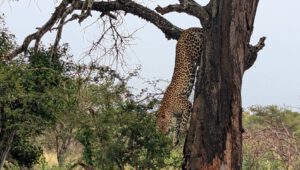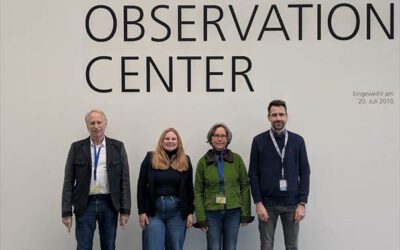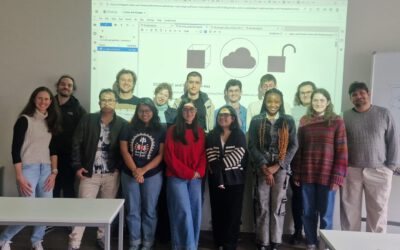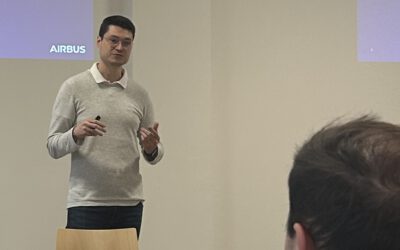Our EORC colleagues Luisa Pflumm, Konstantin Müller, and Dr. Mirjana Bevanda are currently in Kruger National Park, South Africa, conducting fieldwork on the effects of drought and fire on savanna vegetation. This research, which is closely linked to climate change, is carried out in collaboration with the University of Bayreuth and SANParks.
Savannas are shaped by natural disturbances such as fire and prolonged dry periods, both of which influence vegetation patterns and ecosystem dynamics. The team’s work involves assessing fire-affected areas, and analyzing environmental conditions using UAS systems to better understand how these ecosystems respond to a changing environment. Their findings will contribute to a broader understanding of how climate change affects savanna landscapes.
Carrying out research in one of Africa’s largest national parks comes with its challenges but also provides fascinating insights. Beyond collecting data, the team regularly encounters the region’s diverse wildlife, from giraffes and antelopes to baboons and smaller, less conspicuous creatures. Occasionally, work must pause while an elephant crosses the path or rain pouring down.
The conditions can be demanding, with high temperatures and humidity and long hours in the field, but the opportunity to study these ecosystems in situ is invaluable. Such fieldwork offers a rare chance to observe how vegetation, wildlife, and climate interact in one of the world’s most ecologically significant regions.
The data gathered will contribute to ongoing research on ecosystem resilience and adaptation in the face of climate change. Findings from this fieldwork will help inform conservation strategies and improve our understanding of savanna dynamics in a changing world.
We look forward to hearing more from Luisa, Konstantin, and Mirjana as their research progresses.










